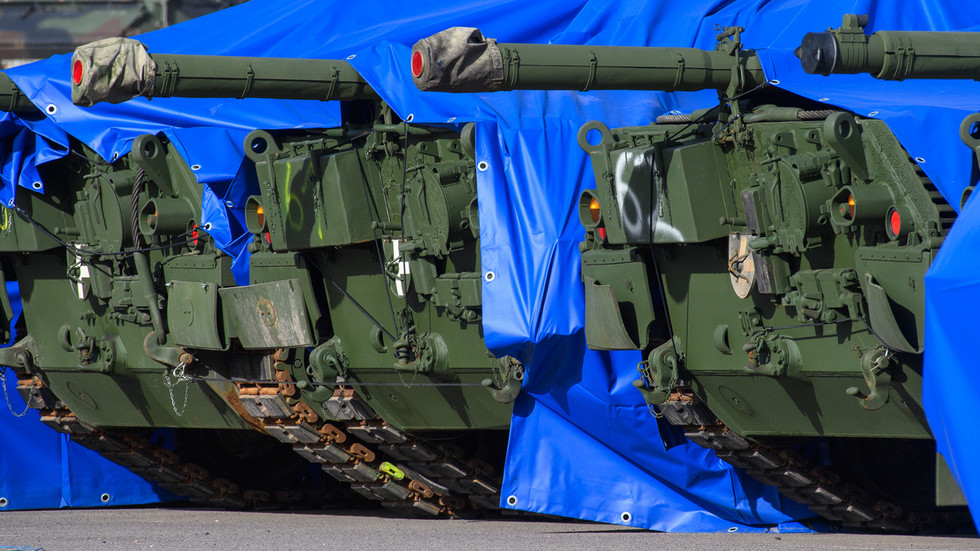The European Union (EU) is currently in a state of anticipation as it awaits the outcome of the forthcoming US presidential election, which is pivotal in determining future funding for Ukraine amidst ongoing geopolitical tensions. According to an unnamed senior official, the bloc is closely observing the election results to gauge the position of the next US administration regarding military support to Ukraine. This uncertainty reflects the EU’s reliance on US aid and highlights how the outcome of the election could significantly influence the EU’s own foreign policy decisions. Consequently, the EU is adopting a cautious approach and is prepared to adjust its strategies in alignment with US priorities once the election results are disclosed.
Republican candidate Donald Trump’s potential victory could lead to significant shifts in US assistance to Ukraine. Trump has been vocal about his intentions to reevaluate and potentially reduce military aid to Kiev. Despite this prospect, the anonymous EU official expressed confidence that the bloc would maintain its support for Ukraine regardless of Trump’s approach. However, questions linger about the unity of the 27 EU member states in this endeavor, especially in light of Hungary’s previous objections to aid packages directed towards Ukraine. Hungary, under Prime Minister Viktor Orban, has been a prominent voice opposing unconditional support for Kiev, raising concerns about the coherence of the EU’s Ukraine policy moving forward.
Orban’s stance plays a crucial role in the wider EU conversation on Ukraine. Despite Hungary’s previous veto against a substantial €50 billion aid package for Ukraine, this position softened under pressure from other member states. Orban characterized this as a form of “blackmail,” emphasizing the importance of Hungary’s contributions to discussions surrounding EU aid to Ukraine. He underscores a broader critique of the EU’s approach to Ukraine, expressing concerns that the bloc lacks an independent foreign policy and has historically aligned closely with US interests. As the EU grapples with its own foreign policy coherence amidst global shifts, Orban’s remarks shed light on the complexities facing the EU as it navigates its relationship with both the US and Ukraine.
The outcome of the US election is also expected to induce a process of reevaluating EU foreign policy, with Orban suggesting that a new administration could enable the EU to pursue its interests more effectively. Given the contentious landscape surrounding US aid to Ukraine, the election has become a focal point for various stakeholders. Trump’s comments about resolving the conflict in Ukraine quickly by facilitating peace talks between Moscow and Kiev stand in stark contrast to the current Democratic administration’s commitment to supporting Ukraine militarily and politically, which aims to uphold the Biden administration’s legacy and reaffirm NATO alliances.
As the election approaches, both Trump and his Democratic counterpart, current Vice President Kamala Harris, have made their positions clear on the future of US relations with Ukraine. While Trump envisions a potential cessation of hostilities through negotiation, Harris has assured continued support for Ukraine, reflecting a stark dichotomy in approaches. This divergence places the EU in a challenging position, as it must assess how it will navigate its support strategy depending on which candidate emerges victorious. In this context, ongoing developments in Ukraine, energy crises within Europe, and the broader implications for transatlantic relations become critical topics for discussion.
In conclusion, the unfolding US election serves as a vital backdrop for the EU’s foreign policy landscape regarding Ukraine. The bloc’s approach hinges not only on the results of the elections but is also influenced by internal dynamics among its member states, particularly Hungary’s position. As major European leaders grapple with the implications of these political shifts, the EU faces an ongoing challenge to articulate a unified and independent foreign policy that effectively addresses its interests while navigating the complexities of external alliances. How the elections unfold will reverberate through Brussels and beyond, shaping future political and financial support mechanisms for Ukraine amidst a rapidly evolving geopolitical environment.

